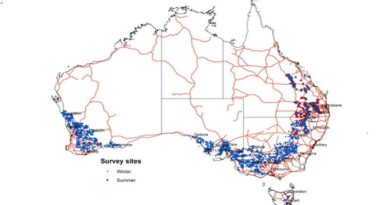Survey of Crop Advisors Highlights Barriers to the Effective Management of Herbicide-Resistant Weeds
28 June 2023, Colorado: Crop advisors are an important source of information for growers who face the persistent threat of herbicide resistance. Scientists with the Weed Science Society of America (WSSA) say these frontline experts can help growers manage weeds that escape treatment, threaten crop yields, and disrupt natural ecosystems and wildlife habitats.
A recent survey of certified crop advisors in all 50 U.S. states shows they are concerned about the escalation of herbicide resistance and the impediments to effective weed management.
The survey was spearheaded by Katherine Dentzman, Ph.D., of Iowa State University, who is a member of the WSSA Herbicide Resistance Education Committee. She found that four out of 10 crop advisers were very concerned about the challenges involved in managing herbicide-resistant weeds over the next five years – a significantly higher percentage than those concerned about resistance to insecticides or fungicides. Concern was greatest among those working with large-scale growers in the West or the Great Plains states, as well as among those supporting corn, rice or beet production.
Crop advisors listed economics as the number one barrier to effective management of herbicide-resistant weeds, followed by management complexity, supply constraints, limited available technology, time constraints and the misguided perception that a “silver bullet” will emerge to support the management resistant weeds. In addition, 82 percent of those surveyed agree or strongly agree that growers need to evolve the way they think about resistance management.
What needs to change? More than nine out of 10 crop advisors surveyed said it is important to develop trusting relationships with growers – allowing a free flow of science-based information that can be relied on. They recommend sharing neighbor successes in resistance management and encouraging stakeholder collaboration in community-wide resistance management initiatives.
More than eight out of 10 said there is also a need for consistent messaging, with all stakeholders speaking with one voice on herbicide resistance best management practices. It’s something they say is often missing today. Most agree that if growers receive conflicting information, it can be hard to change their minds about how they manage resistance.
“Certified crop advisors are in a unique position to see what works, what doesn’t and what barriers need to be overcome,” Dentzman says. “While it is clear there is no silver bullet on the horizon to resolve the complex issue of herbicide resistance, real progress can be made when science-based best practices are shared and supported by all the key players and influencers – from manufacturers and retailers to commodity groups, university extension personnel and crop advisors themselves.”
Highlights from the crop advisor survey are now posted online.
Also Read: FMC Corporation CEO Mark Douglas meets Indian Prime Minister Modi
(For Latest Agriculture News & Updates, follow Krishak Jagat on Google News)















